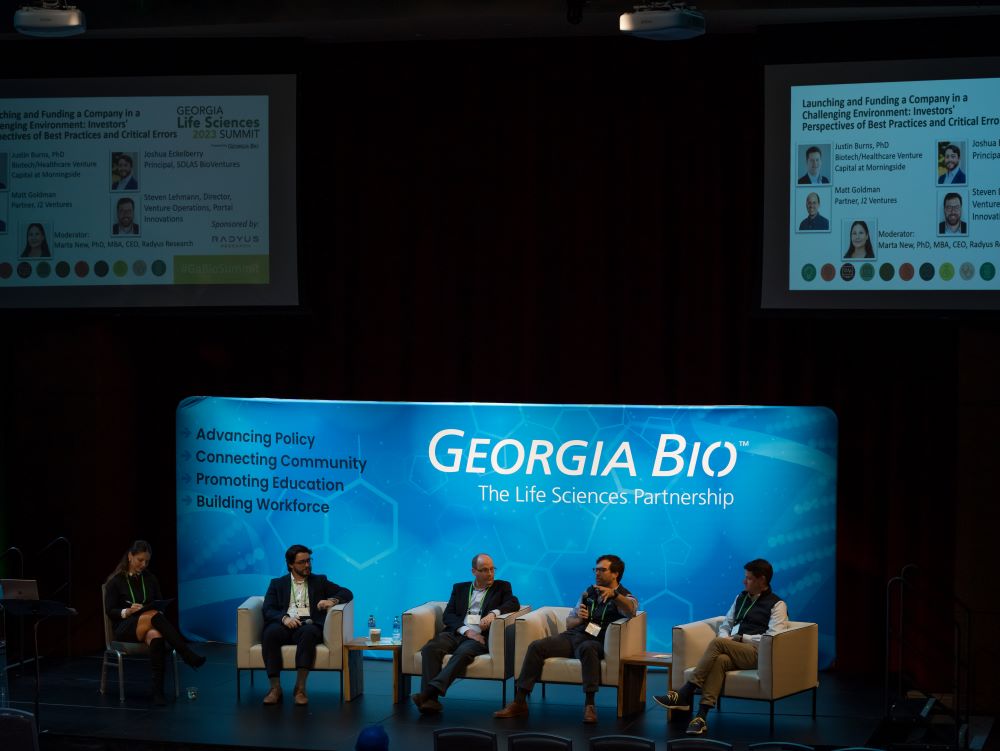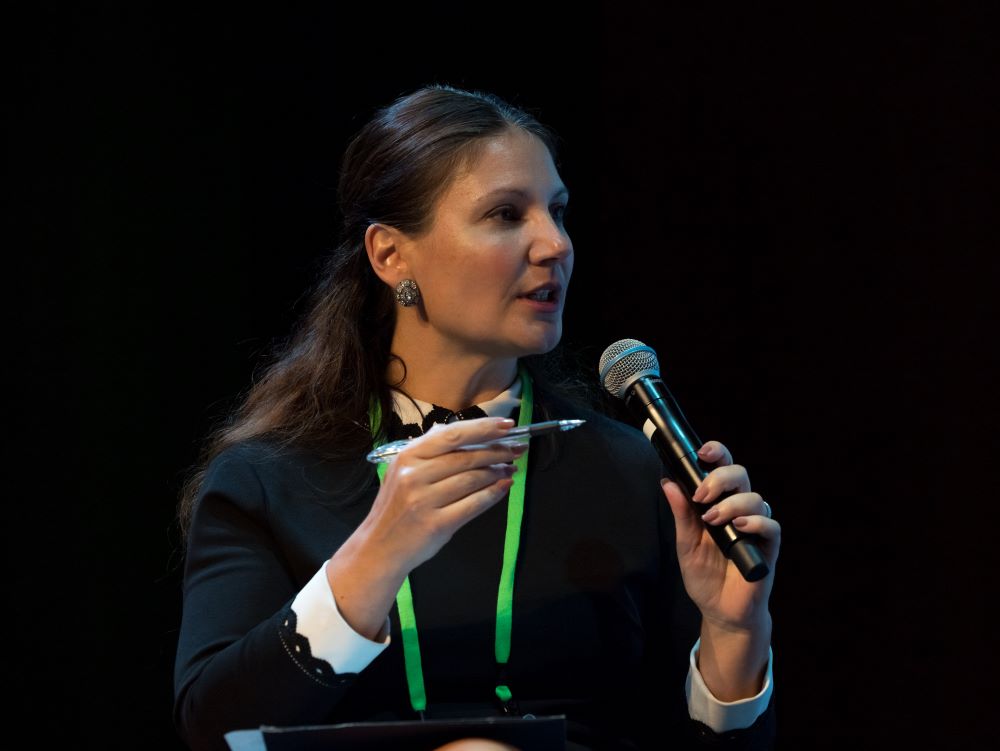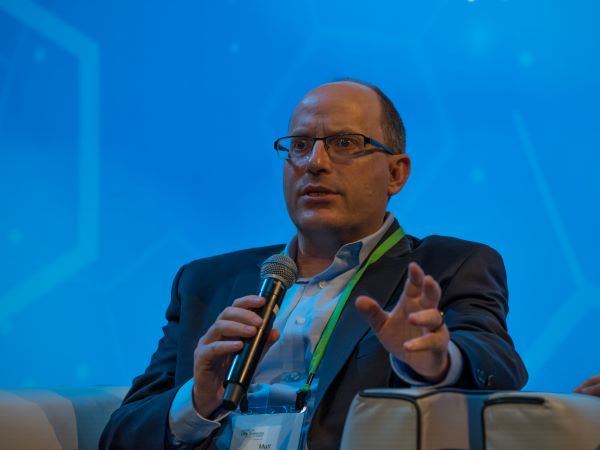Echoing the Optimism for Medtech and Bioscience Venture Investment in the Southeast

In the final session of the 2023 Georgia Life Sciences Summit, four life science venture investors joined Radyus Research CEO Marta New to discuss best practices and errors to avoid for early stage life science companies building an “investment stack” along with their perceptions of the southeast life science innovation ecosystem and its “investability.”

If the life science ecosystem in Georgia were not ‘robust,’ it would not be responsible for north of $50 billion in economic impact. Venture investment in life science in Georgia, however, has lagged well behind vaunted locales like Boston and the Bay Area. Building on existing infrastructure including intellectual capital emanating from the state’s university system as referenced earlier in Tim Denning’s remarks, and upon lower cost of business operations and a high quality of life, are life science innovators in Georgia slated to have higher volumes of venture funding opportunities available to them?
In April 2022, Portal Innovations announced the expansion of its life sciences-focused venture development operation to Atlanta, in an upcoming development called Science Square.
From Portal’s announcement, “We look forward to supporting the life sciences community to allow companies to grow and scale locally. Between the CDC, and top-tier research universities in the area, we view Atlanta as one of the top emerging life sciences markets in the U.S. and would like to support continued growth here, helping it become a robust biotech startup ecosystem.”

Matt Goldman, a partner with J2 Ventures also pointed to strong science and engineering talent, great outreach from high ed institutions’ tech transfer offices and access to high quality early stage legal advice as strengths in Georgia.
The tyranny of geography has diminished with Covid-19 remote working. There has never been a better time to keep the science where it is and let the team do some self-selecting on where they want to be. If that science is coming from a university in Georgia, there is no longer a need for that team to uproot to Boston or the Bay Area when the technology spins out a startup company. Allowing the human capital to be where it most wants to be, as long as the core scientific team is co-located in a place with the assets and infrastructure it needs to succeed, is no longer a risk, but an asset to life science innovation and investment.
Steven Lehmann, Panelist and Portal’s Director of Venture Operations, told moderator and Radyus Research CEO Marta New that they chose Atlanta for its innovation biomarkers and leading indicators. These include grant funding, strong examples of startups spun out in the past, a mature funding ecosystem and patent generation. coming out.
We like partners that want to bet big, especially when it comes to real estate and we found that for Science Square. We are proud to invest time and money here then provide the connections to capital markets wherever they may be.
What will be the next big hit that stays here and then spins out multiple startups? That’s what’s needed most to help the life science startup environment really mature.
Joshua Eckelberry, principal with Solas BioVentures added, there is some lab space here, but more is coming which is a very good thing for the ecosystem. He pointed to strong investor rates of return in the south and midwest while “the universities and hospitals are just as smart [as they are anywhere in the country].”
